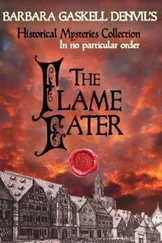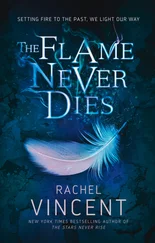It was not such a nice day and there was illness in the field, but we decided to stay. We’d come all the way out here and both of us dreaded being home again, where the house smelled of our own spoiled traces. Esther was coming back tonight, so at least today, for a little while in the field, we could spend our recovery out of doors with some people who were almost our own.
The picnics were not strictly for the Jews of our neighborhood and maybe Bayside or Fort Wine, but they’d winnowed down that way. We were a community bound by an agreement to graze in the same field and enjoy the sight of each other, but beyond that it needn’t escalate.
We used to bring our kids to these picnics as surrogate social agents and the kids seemed to coagulate in some violent, anonymous way, even if the adults cuddled inside their own force fields and only said hello to one another.
Hello was the perfect word. It began and ended all contact, delivering us into private chambers from which we could enjoy other people in textbook abstraction, without the burden of intimacy.
The kids would devour their food, then run off down the foot trail that dead-ended in a wall of trees. Well, other people’s kids. We used to bring Esther to the picnics, but she clung to us and sulked, building out a gloom that she somehow bloodied our own hands with, as if we created her moods in a lab and force-fed them to her every day, giving her no choice but to display feelings of our own authorship. The other kids formed a roving pack, moving like one of those clusters of birds that seem to share a single, frantic brain.
Claire and I would scout the kids for Esther, identifying girls her age, potential targets for friendship.
“I like that girl’s shoes,” I’d say, and Esther wouldn’t even look, just tell me that I should go talk to her if I liked her shoes so much.
“Is that how you captured Mom? Complimenting her footwear?”
“I didn’t capture your mother,” I said.
“Not yet,” smirked Claire.
Kids approached Esther and asked her to play, but she politely declined, citing fatigue. Or she’d say, “No thank you, I never really get to spend time with my parents,” putting her head in her mother’s lap. Claire accepted the affection, ulterior or not, and petted Esther’s hair, careful not to push things too far.
Last year a gaunt, tall girl trespassed our blanket and asked, in the workshopped tones of a second language, if Esther wanted to come see something. The girl smiled conspiratorially, as if to suggest that Esther’s idiotic parents could have no idea how brilliant this thing was that she was inviting Esther to see. Parents were creatures with ruined, insensate heads, and how could they ever be expected to appreciate the marvels of the Monastery valley woods? What was it they’d found, a bucket of fresh, oiled genitals? When Esther declined, failing even to look intrigued, the girl ran off and was soon sucked into a cloud of children who plunged down the hill, shrieking.
“Sweetie, I thought she seemed nice,” Claire said.
“Because she asked a question? That makes her nice? That’s a fairly low standard, Mom.”
“Well, because she was inviting you to join in, and that’s a nice thing to do. She made an effort to include you.”
“So if I try to coerce someone into doing something they don’t want to do, then I’ll be considered nice also?”
This was Esther logic. It was formidable.
“You guys wouldn’t go running off with a pack of strangers,” Esther said, “so why should I?”
“It’s fun,” I ventured, bracing myself for her response.
“Dad, can you name one time in your life when you suddenly ran off with a group of people you didn’t know, screaming and laughing, simply because they were your age?”
I looked down, hoping Esther would lower her voice. But it was true, I could not think of a single time.
“I guess it’s something you sort of stop doing when you get older,” I admitted.
Esther looked at me so hard I couldn’t bear it.
“So why can’t I follow your example and never get involved in such practices in the first place? I’m not an animal. I don’t follow people around simply because their asses smell good to me.”
I probably sighed. Certainly I expressed disappointment without speaking. It always surprised me when I didn’t just stoop to Esther’s level but dug down below it, responding to her killing logic with sublingual ordnance. She watched my little performance, the facial codes I sent out to no avail. I saw her straining not to feel sorry for me.
“This picnic would be more successful,” said Esther, as if she were honestly trying to troubleshoot what had gone wrong, “if you guys gave up your urge to control me.”
“But where’s the fun in that?” I said under my breath.
Sometimes Esther appreciated these retorts. Not today.
We were surrounded by other parents on the black rug, some of whom were overdoing their attempts to show they were not listening. Mostly they’d stopped talking, staring into space as if some wind-borne peril had paralyzed them.
“I think it’s a perfectly successful picnic,” Claire announced. “I’m having a terrific time. I really am.”
The word really showed up now and then in family conversations like these. We all clung to it. A desperate little adjective.
Claire struggled to trust what she’d said. Perhaps she thought a voice-over would convince our audience. She had the amazing ability to conceal all evidence that she detected our prevailing moods, and if she ignored them maybe those moods would vanish. It is true that Claire’s indifference to our despondency sometimes had a medical effect.
Esther looked as if she had been studying our discussion for a class. Her face was blank. She’d fended off another friend and perhaps in her world—with its new-generation accounting—this was a point scored, another success.
Down the ledge an awful blast of laughter rose up from the children, but on our carpet we were quiet.
Without Esther today we tried not to trouble our few neighbors in the field by staring. No one wants to be seen asleep with a blood-cracked mouth. The ventilator chugged and the wind swept waves of dry warmth at us from the heaters. A hairless couple slept loudly on the carpet nearby, the wife’s face erased beneath a white hospital mask.
We ate and rested and we talked a little. Claire insisted that she felt fine. I wanted to believe her, but I felt scared deep in my body. This might have meant nothing. I could feel that way at the wrong times, when things were fine, when I slept or even laughed. Surges of fear that I’d learned to ignore. Eventually you stop paying attention to your own feelings when there’s nothing to be done about them. I wanted to tell Claire I was frightened, but it seemed like one of those remarks that would lead to trouble.
Claire tucked some cookies in her mouth, moving them around with her tongue as if they had bones.
I would have liked to believe in her recovery, but the evidence was impossible to ignore. On our carpet Claire looked like one of those terminal patients let out of the hospital for a final field trip to her favorite restaurant, a ball game. A pity outing. She was thin and pale and when she smiled something dark shone from her mouth.
I would not oppose what Claire claimed about herself or argue her from her position, so I said nothing of the bruising on her hands, the dried blood crisped over one of her ears. Instead I scooted next to her and felt how little she was, how even through her coat I could feel the long cage of my wife’s bones. When I hugged Claire, with sick people strewn in the field, I felt the shallow swell of her breath and she seemed to me like a bellows that I could control, opening and closing her to the air of the world. I thought if I held her I could always be sure she could breathe. I could just squeeze her a little bit, and when I released her the sweet air would rush in to revive her.
Читать дальше











